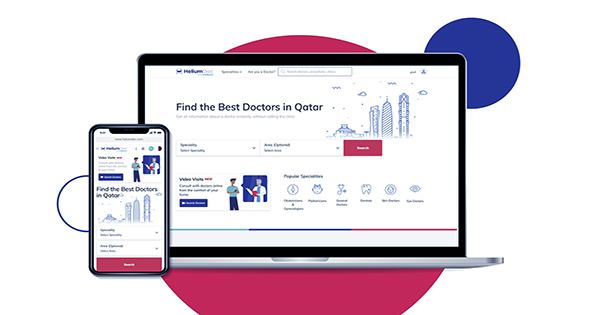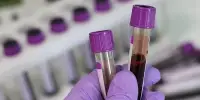Helium Health, a Nigerian health IT business, has acquired Meddy, a Qatar-based and UAE-based doctor-booking platform, for an unknown sum. The purchase, which Helium Health CEO Adegoke Olubusi described as “a tremendous deal” over the phone, is unique in that it brings together two regions that seldom collide in technology: Africa and the Gulf Cooperation Council (GCC).
As part of the acquisition, Meddy’s CEO Haris Aghadi and COO Abed Alkarim Khattab will join Helium’s executive team. They will “play critical roles in Helium’s GCC strategy and operations,” according to the company. Helium Health’s purchase of Meddy is a significant growth move. Olubisi, Dimeji Sofowora, and Tito Ovia launched the firm in 2016, and it is well known in Africa for its core electronic medical records (EMR) and hospital administration solutions. However, it has now expanded its platform to include HeliumPay, a billing, and payments solution; HeliumCredit, a collateral-free lending product; HeliumDoc, a patient-provider and revenue cycle management tool, and data analytics services.
Helium Health has contracted over 500 healthcare institutions in six African countries: Nigeria, Ghana, Senegal, Liberia, Kenya, and Uganda. More than 7,000 medical experts from these facilities currently treat over 300,000 patients each month. An enterprise customer typically requires a variety of services on a single platform, ranging from electronic medical records and management information systems to revenue cycle management, aggregated analytics, and telemedicine.
Most GCC systems, on the other hand, have more vertical than horizontal use cases. Vezeeta and Okadoc, for example, allow users to schedule appointments, use teleconsultation services, and place prescription orders; Bayzat provides an online platform for HR administration, payroll management, and health insurance; and Clinicy operates a digital healthcare management system. As a result, business clients will need to stack these diverse solutions on top of one another in order to have a comprehensive EMR experience.
Helium Health, situated in San Francisco, offers a wide range of B2B options, but it falls short in several other areas, particularly in telemedicine and appointment scheduling, which is more consumer-facing services.
The corporation might have developed up these services on its own, but owing to its development strategy, purchasing Meddy was a preferable alternative. Meddy offers marketing solutions for hospitals to boost their online presence and attract new patients, in addition to providing a doctor booking platform and telemedicine software to handle bookings and patient ratings.
Helium Health, which is supported by Y Combinator and Tencent, can now provide a wider range of services thanks to Meddy. Under the moniker, Helium Doc, Meddy will integrate with Helium Health’s patient-provider and revenue management platform. “In the GCC, there aren’t many individuals that can give a suite like ours.” If they do, they’re doing it at such a high price point that they’ve effectively priced out the market,” Olubusi told TechCrunch.
“However, we can give a comprehensive suite so you can accomplish everything in one place, including appointment scheduling, marketing, EMR, and hospital administration information system.” It saves you a lot of time and effort in the process of attempting to integrate many systems.” Aghadi further points out that the relationship provides clients with interoperability, which is lacking in other EMRs and isolated individual platforms.
Because many old and new products lack open APIs, data transfer between them is problematic. When healthcare practitioners utilize such platforms to make rash health judgments, they bear the price of the lack of interoperability. “In the area, interoperability is a huge difficulty, and having a one-stop-shop like ours addresses that,” Aghadi said.
While two obvious factors drove this acquisition and partnership — leveraging what other healthcare platforms lack and capitalizing on a growing opportunity in the GCC region (where digital infrastructure investment will account for 30% of healthcare investment between 2023 and 2030), Olubisi and Aghadi point to a third, more subtle factor: the teams.
The Helium Health and Meddy teams, according to both founders, are similar in terms of operations, technological execution, culture, and market pricing points. Because of their commonalities, both firms were able to close the purchase in less than four months. “What made this feasible, beyond the actual product and market potential, was actually the composition of the team, how effectively they executed the fact that they share a DNA and culture that’s very similar to ours,” Olubusi said.
Meddy now serves over 150 private clients in the United Arab Emirates and Qatar. With only $1.8 million in venture capital backing, the firm has enabled over 200,000 medical appointments while generating over $130 million in billings for healthcare providers.
As the two firms merge, Olubusi believes the next step would be to figure out how better serve the GCC market with its entire EMR solutions while also launching telemedicine and doctor scheduling services for its African clientele. “A lot of what we’re doing over the next several months is being able to better roll out these consolidated product suites in our markets and better serve customers,” he added. “I mean, over the next two to three years, we want to double or treble our customer base and expand our reach even further to ensure that Helium Health is the leading health tech supplier in the GCC area, just as it is in Africa.”














